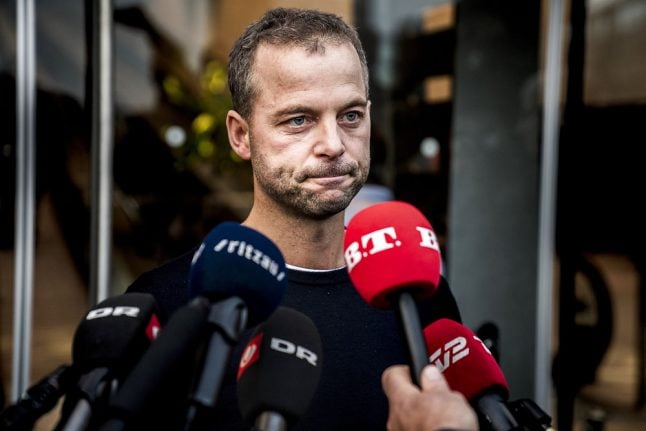Østergaard’s resignation was announced after the party held crisis meetings on Wednesday evening, DR reports. He will be replaced by Sofie Carsten Nielsen, who previously held the party’s political spokesperson post.
The end of Østergaard’s six-year tenure as leader of the Social Liberals, a centre-left party which is an influential ally of the governing Social Democrats, reflects the scope and momentum of Denmark’s ongoing debate over sexism and sexual harassment in the workplace.
The country has seen a momentous reignition of the #MeToo debate in recent weeks, sparked after popular TV host Sofie Linde revealed to a live televised gala that a senior public television executive had offered 12 years ago to boost her career in exchange for oral sex.
READ ALSO: Why Denmark is in the midst of an epic #MeToo reckoning, three years later
The controversy which led to Østergaard’s downfall surrounds an episode involving the erstwhile leader and Lotte Rod, a lawmaker with the party.
Three weeks ago, Rod said that she had been subjected sexual harassment within the Social Liberal party from “older and more powerful men”.
Rod is one of hundreds of women in politics and the media to have come forward with personal accounts of sexism and harassment or to sign letters of support in the wake of Linde’s decision to make her story public.
“I have removed hands from my thigh and I can name several examples of inappropriate behaviour,” Rod said.
After asserting earlier this week that the case had been “dealt with” and that a “reprimand” had been given as a result, Østergaard subsequently said he was stepping down after it emerged that he was in fact the person who had inappropriately touched Rod’s thigh.
“I have failed in regard to the Lotte Rod case. I have not failed Lotte as such. Because it was my hand she removed from her thigh almost a decade ago. I have let down my party, given the confidence they had in me. I can therefore not continue as leader of the Social Liberal party with any legitimacy,” Østergaard said.
“I have let down my party and thereby also the public because I did not have the courage to admit that it wasn’t enough that I said sorry to Lotte. I also had to be open about the fact it was me,” he said. He will continue as a member of parliament, he confirmed.
The decision to step down was his, Østergaard also said.
Following the announcement, Rod said in a social media post that she “regretted it has ended this way”, adding that she was “fond of” the erstwhile party leader.
“Morten has said sorry to me, and I have forgiven him. The problem is no longer what happened, it’s how it was dealt with,” she wrote.
“What’s important for me is that we get a cultural change,” Rod stressed in the tweet.
Morten har sagt undskyld til mig, og jeg har tilgivet ham. Det er ikke længere det, der skete, der er problemet, det er håndteringen. Jeg er ked af, at det er endt her, fordi jeg holder af Morten. Det vigtige for mig er, at vi får en kulturændringhttps://t.co/Dq4dRcuM3q
— Lotte Rod (@LotteRod) October 7, 2020



 Please whitelist us to continue reading.
Please whitelist us to continue reading.
Member comments